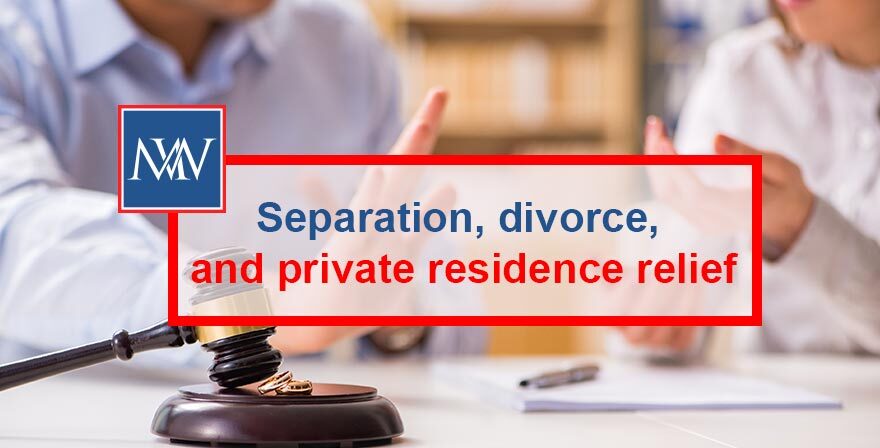
Separation, divorce, and private residence relief
Where a couple separate or divorce, one party may move out of the matrimonial home, with the other party buying them out. This could have capital gains tax implications.
While a couple is married and in a civil partnership and living together, they can transfer assets between them at a value that gives rise to neither a gain nor a loss. Furthermore, for private residence relief purposes, they can only have one main residence between them.
However, if the couple separates permanently, any transfers between them that take place after the end of the tax year in which they separate are at market value – the no gain/no loss rule ceases to apply. Further, they are no longer restricted to having only one main residence between them – each partner is entitled to private residence relief on their own main residence.
Beware the nine-month window
The final period exemption was reduced from 18 months to nine months from 6 April 2020. This reduction may impact on couples Separation or divorce.
Whereas part of a financial settlement on separation or divorce or on the dissolution of a civil partnership, the spouse or civil partner who has ceased to occupy the marital home transfers an interest in that property to the other spouse or civil partner and the date on which the transfer takes place is more than nine months (for disposals after 6 April 2020) after the date on which they last occupied the property as their main residence, full private residence relief will not be due. The final period exemption now only shelters the last nine months of ownership.
Special relief
However, help may be at hand in the form of special relief.
The former matrimonial home can be treated as the main residence of the transferring spouse or civil partner from the date that his or her occupation ceased until the earlier of the date on transfer and the date on which the spouse or civil partner to whom the property is transferred ceases to use this as their main residence. The transferring spouse or civil partner must elect for this relief to apply.
Aside from the final nine-month of ownership, relief for one property cannot be given at the same time as a relief for another property. As a result, where the transferring spouse has acquired another residence, they may prefer that property to be their main residence. Consequently, this relief may not be beneficial in all cases.
For more information on Separation, divorce, and private residence relief, Book a Free Consultation
Need Accountancy Support?
For information on bespoke training, or if you have any other questions for Makesworth Accountant, please fill in your details below




















 148
148